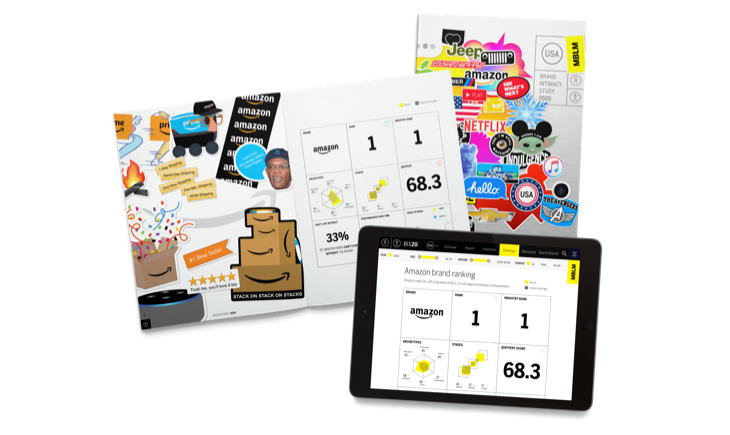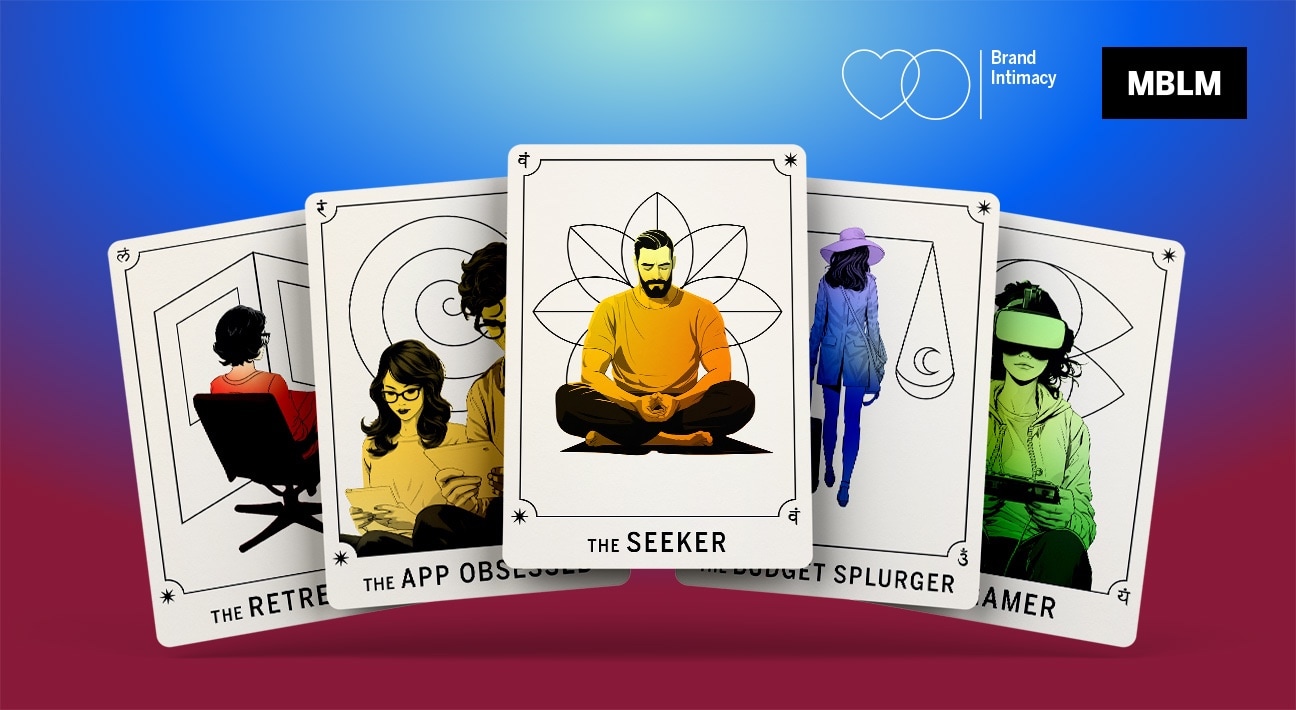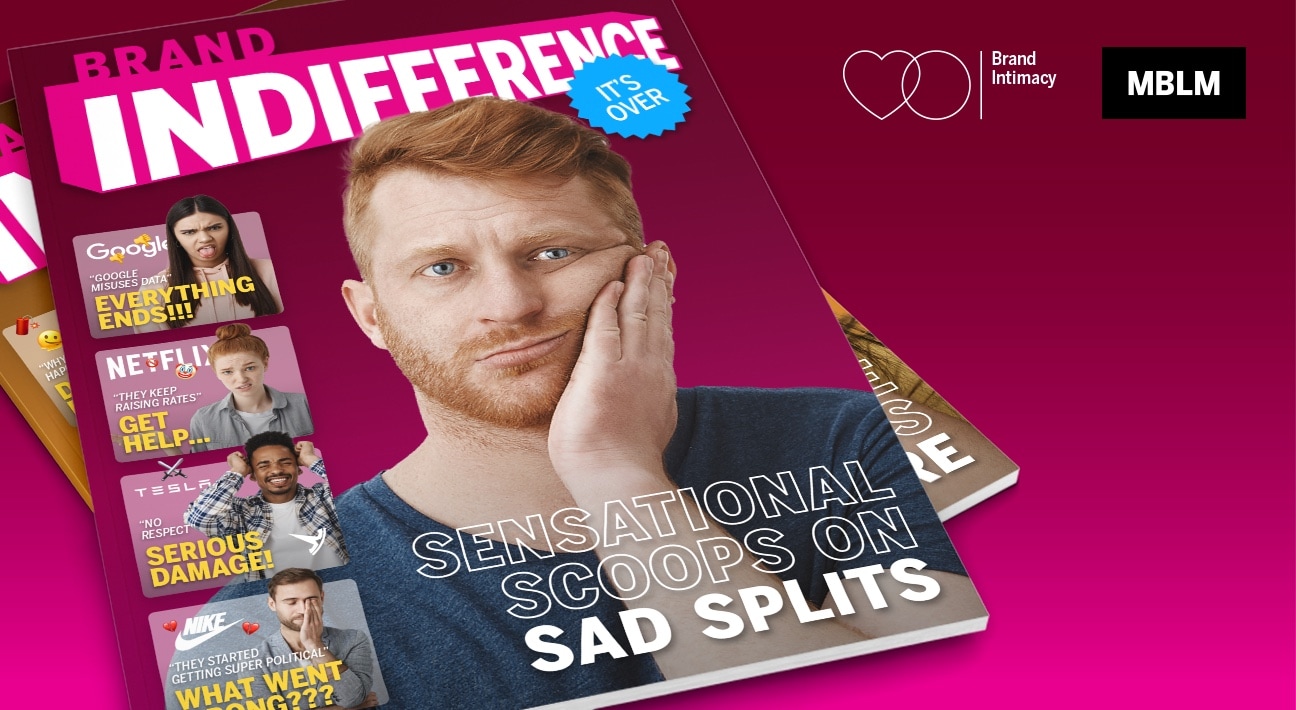Amazon Prevailed Over Disney and Apple for First Time in MBLM’s Brand Intimacy 2020 Study, Now in its 10th Year

Amazon ranked #1 for the first time in MBLM’s Brand Intimacy 2020 Study, which is the largest study of brands based on emotions, now in its 10th year. Disney and Apple placed second and third in the study, which will be launched on Valentine’s Day. Automotive brands comprised four out of the top 10, up from three in 2019, while media & entertainment brands slipped by one – making up four of the top 10 in last year’s study and three in 2020. Apple represented the only technology & telecommunications brand. The remaining brands in the top 10 were: Ford, Jeep, Netflix, BMW, Chevrolet, Walmart and PlayStation. Brand Intimacy is defined as the emotional science that measures the bonds we form with the brands we use and love.
Top intimate brands in the U.S. also continued to significantly outperform the top brands in the Fortune 500 and S&P indices in both revenue and profit over the past 10 years, according to the Brand Intimacy 2020 Study. The average revenue growth from 2009-2018 was 6.47% for the top 10 most intimate brands, compared to 5.16% for top S&P companies and 5.08% for Fortune 500 top brands. The average profit growth during this same period was 37.69% for leading intimate brands compared to 6.99% for S&P companies and 16.43% for Fortune 500 companies.
“We are thrilled to celebrate our 10th year of examining brands based on emotion. The concept of Brand Intimacy is important for marketers because emotion has been proven to drive purchase decisions, and also long-term customer bonds. Our yearly study reveals the changing landscape including which brands or industries perform best against different demographics,” stated Mario Natarelli, managing partner, MBLM. “Amazon’s rise to the top is something we forecasted for years based on the insights we’ve been gathering. The brand’s dominance and breadth of portfolio have formed both intense and essential bonds with consumers. Examining top performers like Amazon can give us clues on how others can achieve their growth and success.”
The Brand Intimacy 2020 Report contains the most comprehensive rankings of brands based on emotion, analyzing the responses of 6,200 consumers and 56,000 brand evaluations across 15 industries in the U.S., Mexico and UAE. MBLM’s reports and rankings tool showcase the performance of almost 400 brands, revealing the characteristics and intensity of the consumer bonds.
The study also revealed additional noteworthy findings in the U.S. including:
- Automotive, media & entertainment and technology & telecommunications were the top three industries, respectively
- Willingness to pay more for intimate brands increased by 13%, suggesting a more stable economy and consumer confidence
- The top three brands for women were Disney, Amazon and Apple and for men were Ford, Amazon and Apple. Women had slightly higher rates of Brand Intimacy compared to men
- Millennials selected PlayStation as their #1 brand whereas Gen Z ranked Xbox first
- Those making between $35,000-$100,000 chose Disney, Amazon and Apple as their most intimate brands, while those making over $100,000 ranked Apple, Amazon and BMW as their top three
- Consistent with the previous three years, brands that are part of the smartphone ecosystem generally outperformed those that are not. The average Brand Intimacy Quotient for those in the ecosystem was 38.1, which is significantly higher than the overall study average of 31.0
To download the Brand Intimacy 2020 Study or explore the Rankings click here.
Methodology
During 2019, MBLM with Praxis Research Partners conducted an online quantitative survey among 6,200 consumers in the U.S. (3,000), Mexico (2,000), and the United Arab Emirates (1,200). Participants were respondents who were screened for age (18 to 64 years of age) and annual household income ($35,000 or more) in the U.S. and socioeconomic levels in Mexico and the UAE (A, B and C socioeconomic levels). Quotas were established to ensure that the sample mirrored census data for age, gender, income/socioeconomic level, and region. The survey was designed primarily to understand the extent to which consumers have relationships with brands and the strength of those relationships from fairly detached to highly intimate. It is important to note that this research provides more than a mere ranking of brand performance and was specifically designed to provide prescriptive guidance to marketers. We modeled data from over 6,200 interviews and approximately 56,000 brand evaluations to quantify the mechanisms that drive intimacy. Through factor analysis, structural equation modeling, and other sophisticated analytic techniques, the research allows marketers to better understand which levers need to be pulled to build intimacy between their brand and consumers. Thus, marketers will understand not only where their brand falls in the hierarchy of performance but also how to strengthen performance in the future.
To read a more detailed description of MBLM’s approach, visit its Methodology page.

